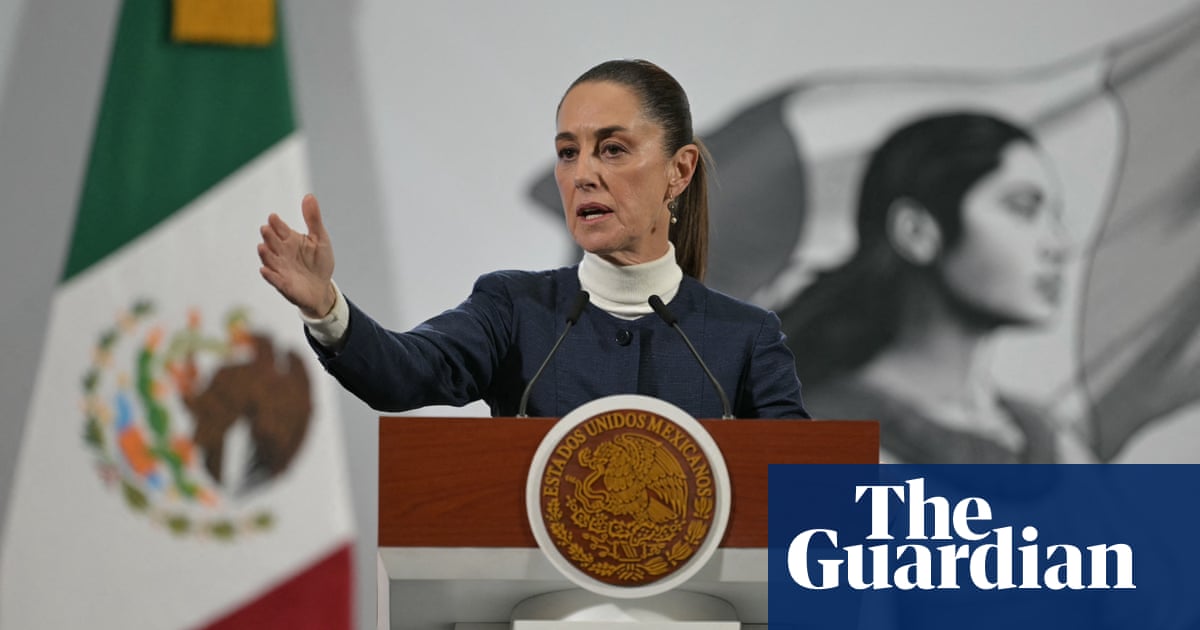Photo credit: www.theguardian.com
In a strong response to the United States’ recent designation of Mexican drug cartels as terrorist organizations, Mexican President Claudia Sheinbaum has asserted that Mexico will vigorously defend its national sovereignty against any perceived intrusion by the US. She stated, “This cannot be an opportunity for the US to invade our sovereignty,” emphasizing that Mexico prioritizes collaboration and coordination over any form of subordination or intervention.
Sheinbaum criticized the US for failing to consult her administration before classifying Mexican cartels among global terrorist groups. In light of this decision, she announced plans to propose a constitutional reform intended to bolster protections for Mexico’s sovereignty. “The Mexican people will under no circumstances accept interventions, intrusions, or any other action from abroad that are detrimental to the integrity, independence, or sovereignty of the nation,” she declared during her routine morning press briefing.
Her statements serve as a subtle rebuke to former President Donald Trump, who has accused Mexico of facilitating a migrant “invasion” into the US. These comments are particularly significant given the historical context of US-Mexico relations, marked by multiple invasions and territorial claims by the US in the past.
In addition to addressing sovereignty issues, Sheinbaum revealed her intention to introduce another constitutional reform that would impose harsher penalties on individuals—both Mexican and foreign—engaged in arms trafficking, as a considerable portion of firearms used in crimes within Mexico originates from the US.
Furthermore, Sheinbaum reaffirmed her commitment to taking legal action against US gun manufacturers, holding them responsible for negligent practices that contribute to the circulation of firearms among drug traffickers in Mexico. She noted that this lawsuit could potentially introduce allegations of complicity with terrorist entities against these manufacturers.
The Trump administration’s recent decision to target eight Latin American drug trafficking organizations, including the prominent Jalisco New Generation and Sinaloa cartels, reflects a broader effort to intensify measures against gang activities. This designation raises concerns regarding its potential implications on US asylum claims, as migrants may be labeled as supporters of terrorist organizations while being coerced into paying extortion or ransom to these cartels.
On his first day back in office, Trump signed an executive order asserting that these cartels pose a national-security threat surpassing that of traditional organized crime. This has sparked discussions surrounding the possibility of military action against these groups, with tech mogul Elon Musk suggesting that this designation could make them targets for drone strikes.
In response to these developments, the US military has reportedly increased aerial surveillance operations near the border, complemented by heightened CIA drone activities aimed at locating fentanyl production facilities in Mexico. However, Sheinbaum has clarified that such operations are conducted with the explicit consent of the Mexican government.
Source
www.theguardian.com

